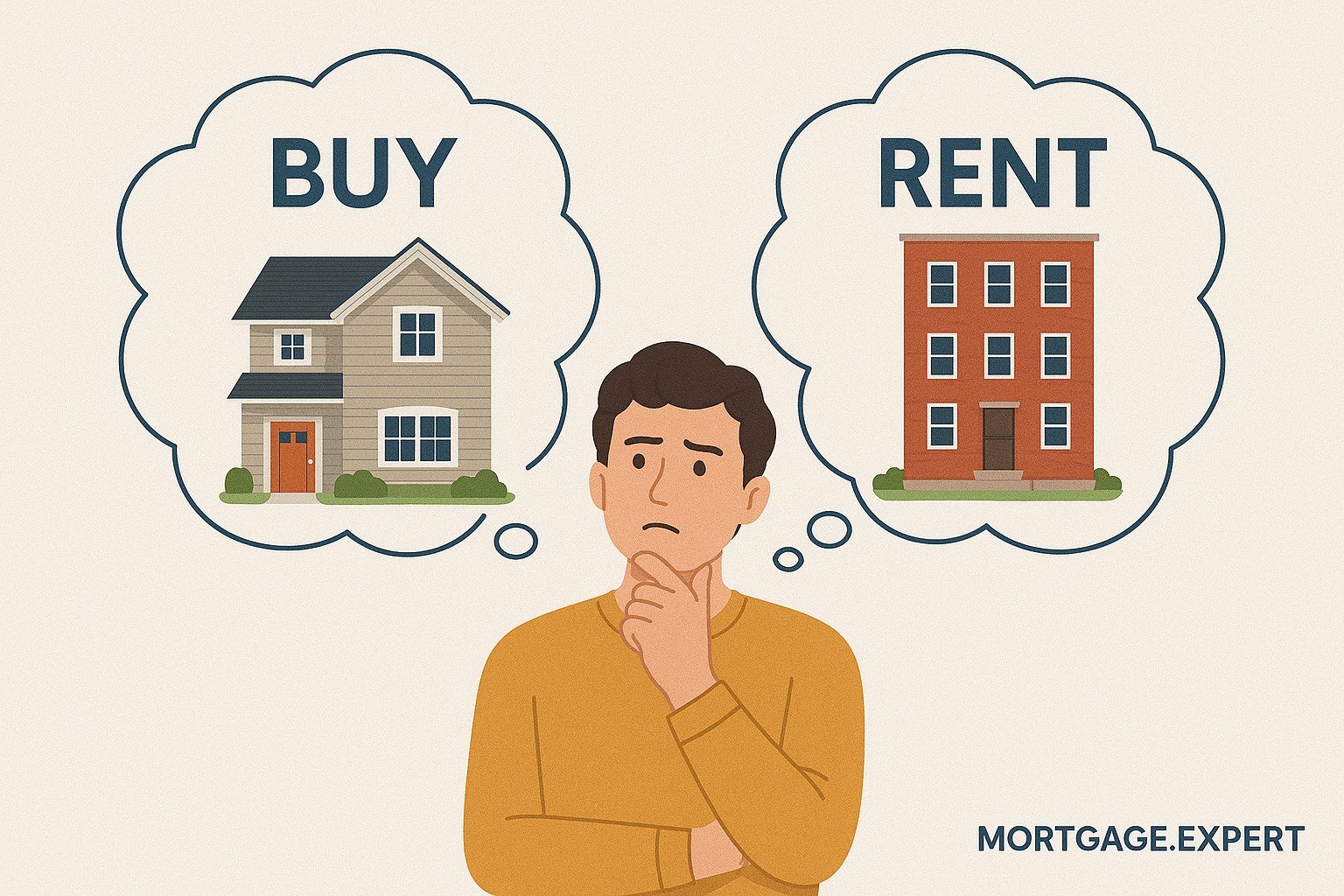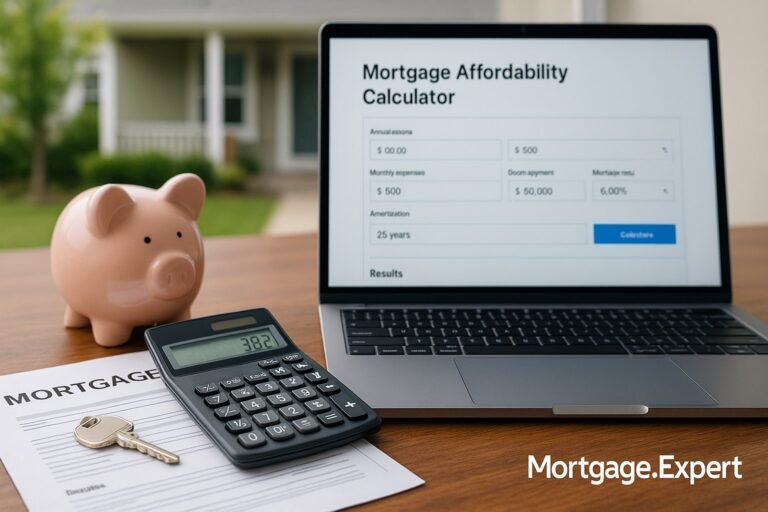
Is It Better to Buy or Rent in Toronto? Here’s What You Need to Know
Debating whether to buy or rent in Toronto? This guide walks you through the pros, cons, and real numbers to help you make the smartest decision for your lifestyle and budget.
If you’ve ever lived in Toronto, you’ve probably asked yourself the big question: Should I keep renting, or is it finally time to buy a place? With home prices still sky-high and rents climbing just as fast, figuring out the right move can feel overwhelming. But here’s the good news — the answer isn’t about what’s right for everyone. It’s about what’s right for you.
Buying a home comes with long-term financial gains and stability. Renting, on the other hand, offers flexibility, fewer responsibilities, and lower upfront costs. In a city like Toronto, where the housing market is anything but predictable, this decision deserves careful thought.
Let’s walk through what it means to rent or buy in today’s Toronto market, explore the financial trade-offs, and use a simple rule of thumb that can help you make an informed choice — whether you’re planning for the next year or the next decade.
Renting a Home in Toronto
Renting often gets dismissed as “throwing money away,” but that’s far from the truth. For many people, renting is a smart, practical decision — especially if you’re still figuring out where you want to live, planning to move again soon, or just not ready to take on a mortgage.
When you rent, you get flexibility. Lease agreements typically run for 12 months, giving you the freedom to move neighbourhoods, cities, or even countries without the hassle of selling a home. It’s ideal if your job is mobile, your lifestyle is changing, or you’re simply not ready to settle down.
Another major perk? No surprise maintenance bills. When your kitchen faucet leaks or your furnace stops working in the middle of winter, it’s your landlord’s problem — not yours. That saves both time and money.
Renting is also much cheaper upfront. Instead of saving tens or hundreds of thousands for a down payment, all you need is first and last month’s rent to move in. That means your money stays more liquid — and potentially invested elsewhere.
But renting isn’t without its downsides. You may face rent increases every year, and in non-rent-controlled buildings, landlords can raise rents significantly. There’s also less control over your living space, whether that’s being restricted from painting the walls or being forced to move because the owner sells the unit. And let’s not forget — every rent cheque you write goes toward your landlord’s equity, not yours.
Owning a Home in Toronto
Now let’s talk about buying. Homeownership is a long-term commitment, but for many Canadians, it’s also a cornerstone of financial independence. When you own your home, you gain more than just a roof over your head — you gain equity, stability, and long-term financial growth.
With every mortgage payment you make, a portion goes toward reducing your loan balance. Over time, as your mortgage shrinks and property values (hopefully) rise, you build significant equity. Eventually, that equity can be accessed for renovations, education, investments, or retirement planning.
You also get freedom — paint the walls, redo the floors, upgrade the kitchen — it’s your home, and you don’t need anyone’s permission. Plus, unlike rent, your monthly mortgage payment doesn’t rise unexpectedly, especially if you lock into a fixed rate.
And there’s a major tax benefit: if you sell your home after living in it as your primary residence, any capital gain is 100% tax-free thanks to Canada’s principal residence exemption.
But ownership comes with its own pressures. There’s less flexibility — if you need to move suddenly, selling a home is a lot more complicated than ending a lease. And those upfront costs? They’re steep. You’ll need at least a 5% down payment, plus closing costs (think legal fees, land transfer tax, inspection costs), which can add up to 4% of the purchase price.
Then there’s the ongoing responsibility. Every leaky faucet, broken window, or cracked roof tile is your problem now — and you’ll need to budget for it. Property taxes and homeowner’s insurance are also part of the package.
The 5% Rule: A Simple Way to Compare Renting vs. Buying
Still not sure which option is more cost-effective? Here’s where the 5% rule comes in — a popular method for comparing the unrecoverable costs of renting versus buying.
Here’s how it works: when you rent, every dollar you pay is unrecoverable. It doesn’t build equity, and you don’t get it back. But homeownership also comes with unrecoverable costs — property taxes, maintenance, and capital costs (the money you could have earned if you’d invested the value of your home elsewhere). Combined, these are estimated at 5% of your home’s value each year.
To apply the rule:
- Multiply the home’s purchase price by 5% to get your annual unrecoverable cost.
- Divide that number by 12 to get the monthly cost.
- Compare that number to the rent for a similar property.
If renting costs less than the 5% monthly cost of owning, renting might be the better deal. If it costs more, buying could make more financial sense.
Rent vs Buy: A Real Toronto Example
Let’s say you’re eyeing a condo in Toronto valued at $681,855, the average price based on current market data.
Multiply that by 5% and you get $34,093 per year in unrecoverable costs. That breaks down to about $2,841 per month.
Now compare that to the average rent for a comparable condo in the city — currently sitting at around $2,632 per month.
In this case, since the cost of renting is less than the 5% rule’s monthly ownership cost, renting might be the better short-term financial move. However, if you find a condo priced below the average or plan to stay long enough to benefit from equity gains and appreciation, buying may still be the smarter option over the long run.
Frequently Asked Questions
Is it better to rent or buy in Toronto right now?
It depends on your personal and financial goals. If flexibility is your priority or you don’t have a large down payment, renting might be ideal. If you’re looking for long-term stability and can afford the upfront costs, buying could offer greater financial benefits.
How much do I need to buy a home in Toronto?
At minimum, you’ll need 5% of the purchase price as a down payment, plus closing costs (typically around 4%). If your down payment is under 20%, you’ll also need to pay for mortgage default insurance.
What are the hidden costs of homeownership in Toronto?
There aren’t really hidden costs — just often overlooked ones. These include land transfer tax, legal fees, inspections, property taxes, maintenance, insurance, and potential repairs. All of these should be part of your upfront planning.
Final Thoughts: Should You Buy or Rent?
There’s no universal right answer. But if you’re looking to stay in the city long-term, can manage the upfront costs, and want to build equity over time, buying a home is likely the more financially sound decision over a 5–10 year horizon. On the other hand, if you’re unsure about where you want to live, plan to move soon, or want to keep your cash more flexible, renting could make more sense right now.
The key is to understand your goals — and to run the numbers with tools like the 5% rule or a mortgage calculator. And if you’re still on the fence, a licensed mortgage expert can help you explore both paths and decide which one fits your lifestyle, income, and future plans.
To know the impact of Trumps Tariff on Mortgage Rates. Click Here
Stuck with a Mortgage Decision?
Don’t stress — our team is here to help. Reach out for free, no-obligation guidance.
Contact the Experts



